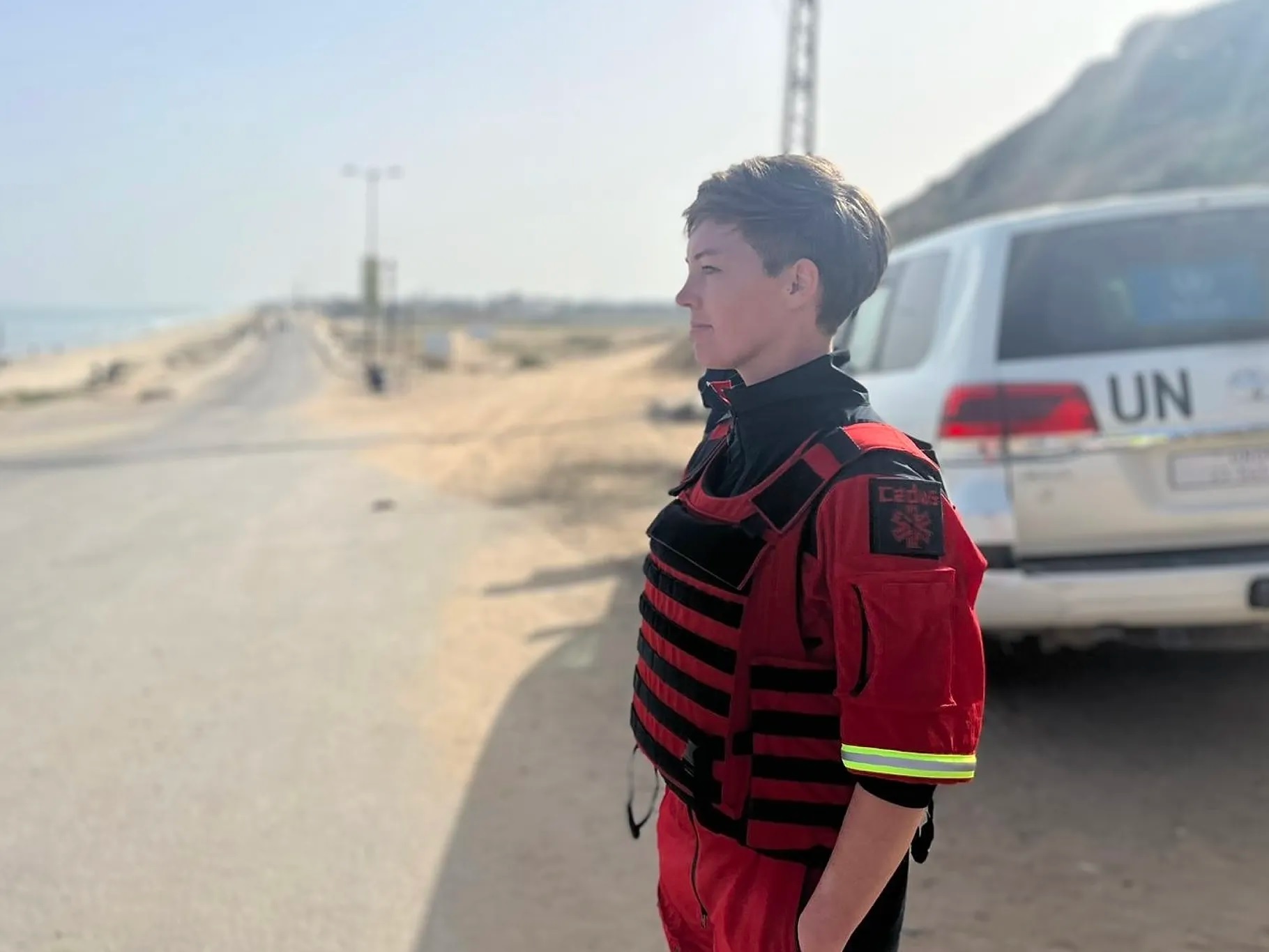"Gaza has by far been the worst humanitarian crisis I have ever responded to," said Laura Jones, a Welsh native, Global Health and Wellness Lead at Save the Children, founder of Almas Libres - an association based in Barcelona aimed at educating and empowering girls through urban sports, culture, and technology - and part of the World Health Organization's Emergency Medical Teams (EMT) Group.
Last April, she traveled to Gaza as a member of a specialized medical team to provide care in Khan Yunis and assist in medical evacuations after responding to an invitation from the WHO group, becoming the first woman to support this type of mission.
Throughout her career, Jones has traveled to crisis areas such as Nepal in 2015 after the country's earthquake, the Ebola outbreak in Uganda in 2019, and the Rohingya conflict in 2017. However, she points out that her experience in Gaza last April broke her despite trying to "manage" her expectations, and "the number of deaths was significantly higher than expected." Daily death "of children and entire families," but also "devastation and impact on mental health." All of this has left, she emphasizes, "an indelible mark" on her soul.
Heart-wrenching situations that bring back memories of families parting ways knowing they will never see each other again, of broken and dusty toys as the only luggage in a child's backpack, of tension on faces when passing through Israeli Army checkpoints. However, she also recalls whispers of 'shukran' (thank you), silent prayers, a pat on the shoulder, or a gesture of relief.
"During the evacuation of patients from northern Gaza, the limited capacity of the ambulance meant that only one family member could accompany them. This made parents have to make the agonizing decision of who to send, often considering that only children or women were allowed to go. Watching these farewells was incredibly heartbreaking, as they knew it could be the last time they saw their children. I saw parents hiding their sadness with courage and resilience. Their ability to cling to hope and maintain their humanity in the face of relentless suffering will stay with me forever," Jones recalls.
Passing through Israeli checkpoints also led to very tense situations, explains the humanitarian worker: "The fear in the faces of patients and family members was palpable, they looked down and traveled in silence. The tension was so intense that it was almost visible. Israeli forces could open the back door of the ambulance, open fire, or let us pass."
Laura Jones also remembers X, a 24-year-old anesthetist she met at the Trauma Stabilization Point of the Palestinian Red Crescent in Khan Yunis. "She, her parents, and her five sisters had been displaced by the conflict to a tent where they all lived.
She taught me about the local culture and gave me Arabic lessons, and in return, I taught her how to play soccer. Along with other colleagues, they founded the first women's club of the Palestinian Red Crescent. This showed that even in difficult times, when there are many barriers, community can be fostered through shared experiences."
Everyday heroes enduring "unimaginable" hardships, as Jones describes them, highlighting their "resilience, solidarity, and hope amidst devastation."
In Gaza, "every day is a struggle for survival, families wander through streets full of rubble with the constant threat of looming airstrikes. However, there are powerful moments of hope and children find ways to smile and play. Communities come together, share the scarce resources they have, and support each other. The true story of Gaza is one of extraordinary human resilience."
But how does a war like this affect people's minds? According to the humanitarian worker, it has "profound effects that often turn into severe psychological traumas, from post-traumatic stress disorder to depression and anxiety, to the point of affecting the ability to function and integrate into post-conflict life. The constant threat of violence, the loss of loved ones, and the destruction of homes take a toll on the human psyche."
Jones states, "fear, overcrowding, and hunger play a significant role in suffering, but the worst is the uncertainty and the inability to leave due to not having the necessary money to do so." She recounts the following conversation with a friend: "What is the cost of a life, Laura? To leave Gaza in a month, we have to pay $5,000. If we want to leave tomorrow, it costs much more: $9,000, $10,000, $11,000."
In Gaza, the air is filled with dust, and distant explosions and the ominous buzz of drones are ever-present. According to Jones, one must put on physical and mental armor to survive day by day, as "nowhere is truly safe."
Women bear the brunt
As in any war, the situation is particularly challenging for women, who have seen how growing conservatism has impacted their lives. According to the doctor, "the prolonged conflict has intensified traditional gender roles, with women expected to give priority to household tasks and caregiving, and step away from public life and decision-making. Added to this are greater mobility restrictions, which have led them to be confined to their homes. Gender-based violence, sexual harassment, and exploitation have increased."
